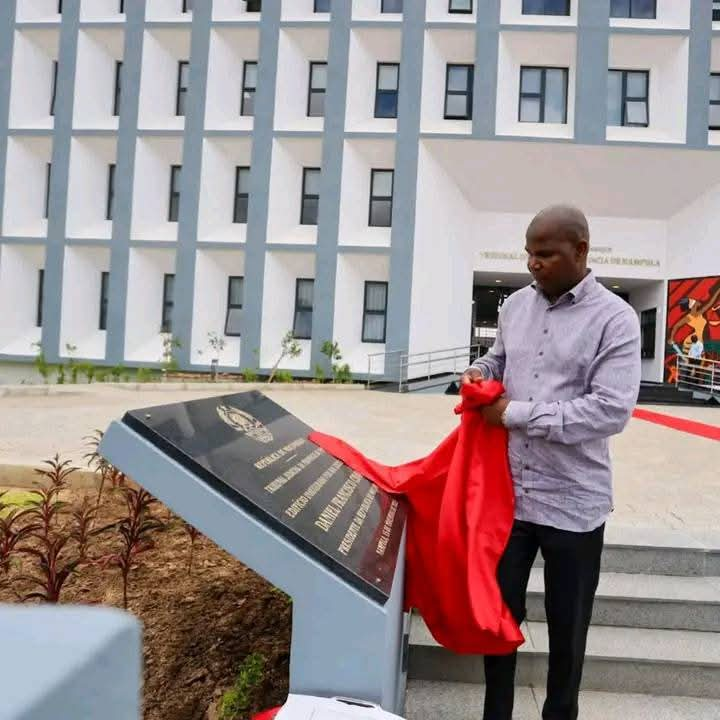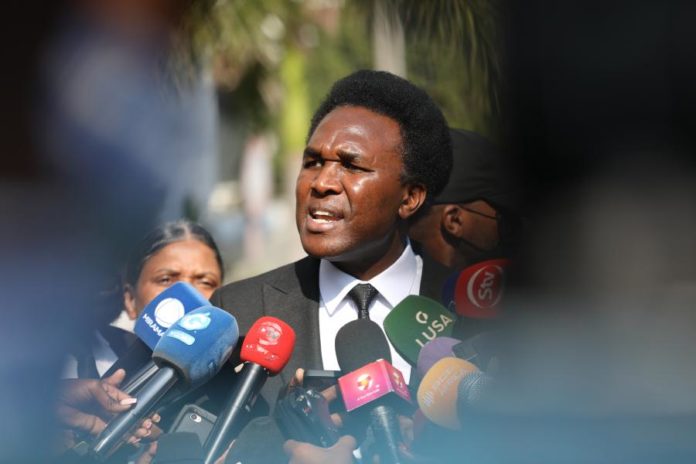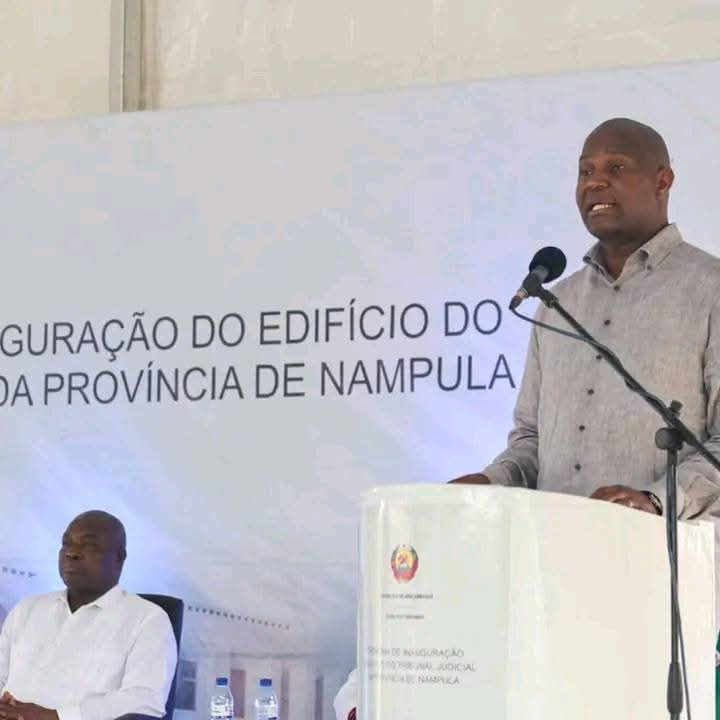
Presidente moçambicano, Daniel Chapo, inaugura novo edifício do Tribunal Judicial da Província de Nampula
Maputo, 16 Nov (AIM) – Mozambican President Daniel Chapo on Saturday inaugurated new premises for the Nampula Provincial Law court, and declared that Mozambique is entering upon a new stage in the consolidation of the legal system.
He regarded the new Nampula courtroom as “institutional continuity” with the recent national conference on the fight against corruption. The new building, Chapo said, according to a release from his office, “is a decisive step for improving the working conditions of the judicial institutions”, which strengthens access to justice for millions of citizens.
He noted that Nampula “is one of the provinces under most pressure from complex criminal phenomena, including drug trafficking, the trafficking in people and human body parts, money laundering, the illegal exploitation of mineral, forestry and wildlife resources, and illegal immigration”.
Chapo regarded the new courtroom as a concrete step to guarantee speedy handling of cases and boosting the fight against organised crime.
He stressed that “integrity and public trust are fundamental pillars” for stability and security. He admitted that no state body is completely immune to corruption.
Corruption, the President added, has a serious impact on institutional credibility and on the economic environment. Loss of credibility leads to impunity and dissuades companies from investing.
“Mozambican and foreign investors”, he said, “put their trust in countries where there is no corruption”.
Chapo presented measures to prevent and repress illicit acts in the justice sector. He called for greater transparency, strengthened inspections and continual training of magistrates.
He encouraged educational institutions to boost the teaching of ethics and integrity and guaranteed that there will be no retaliation against whistle blowers.
Chapo hoped that judicial bodies will “take an exemplary position in defence of the rule of law. Without the judiciary there is no democratic rule of law”.
The judiciary, he urged, must prove that “crime does not pay”, and that a firm legal system is “the greatest shield of citizenship”.
(AIM)
Pf/ (324)







